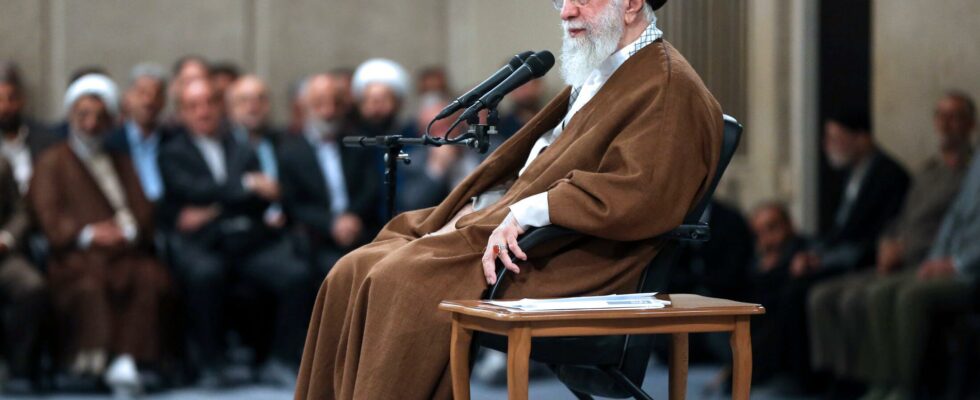Updated 06.36 | Published 06.27
unsaveSave
expand-left
full screen Iran’s Supreme Leader Ali Khamenei at an appearance in Tehran on May 1. Archive image. Photo: Iran’s Supreme Leader’s Office Via AP/TT
The death of President Ebrahim Raisi does not seem to affect Iran’s political system or stability, says Iran expert Mohammad Fazlhashemi.
The president has died in a helicopter crash on Sunday afternoon, Iranian state media confirms. Also on the helicopter were, among others, Foreign Minister Hossein Amir-Abdollahian and a local governor.
– President Raisi did not have the highest executive power in Iran. The role of president is not marginal, but it is limited, says Fazlhashemi, who is professor of Islamic theology and philosophy at Uppsala University.
His assessment is that the Iranian political system is not shaken by the death.
– The system in Iran has foreseen such events for the foreseeable reason, he says and points to several power bodies and political institutions that govern Iran: the powerful Guardian Council, the Council of Experts and the Parliament.
Ayatollah’s power
The real power in Iran lies with the country’s supreme leader, Ayatollah Ali Khamenei. Extensive and important decisions are made by him and the groups around him. This applies, for example, to decisions to attack Israel or other crucial issues.
This also applies to foreign policy, where the foreign minister’s mandate is largely limited.
The Vice President takes over
It can be added, says Fazlhashemi, that according to Article 131 of the Iranian constitution, the vice president assumes power upon the death of the president after the Supreme Leader’s approval.
A council consisting of the vice president, the head of the country’s judiciary and the speaker of the parliament is then formed, with the task of calling presidential elections within 50 days.
According to international observers, President Raisi was close to the ayatollah and belonged to the country’s hardline and conservative phalanx.
FACT The power in Iran
Power in Iran emanates from the supreme leader, who is seen as the deputy of the twelfth imam who, according to Shiite Islam, disappeared in the 8th century and is expected to return one day.
The Supreme Leader is elected by the Council of Experts, who can also formally depose him. The expert council consists of roughly 80 scribes who are appointed in general elections every eight years – but all candidates must first be approved by the guardian council, of which six out of twelve members are appointed by the supreme leader himself.
The rest of the Guardian Council is appointed by Iran’s Supreme Prosecutor (who is chosen by the Supreme Leader) and then approved by the Parliament. All candidates for the presidency and parliament must be approved by the Guardian Council.
The supreme leader has veto power, is commander-in-chief and appoints all senior positions in the judiciary, state media and the so-called mediation council, which is supposed to mediate in disputes between the parliament and the guardian council.
Sources: The National Encyclopedia and the Foreign Policy Institute
Read more
